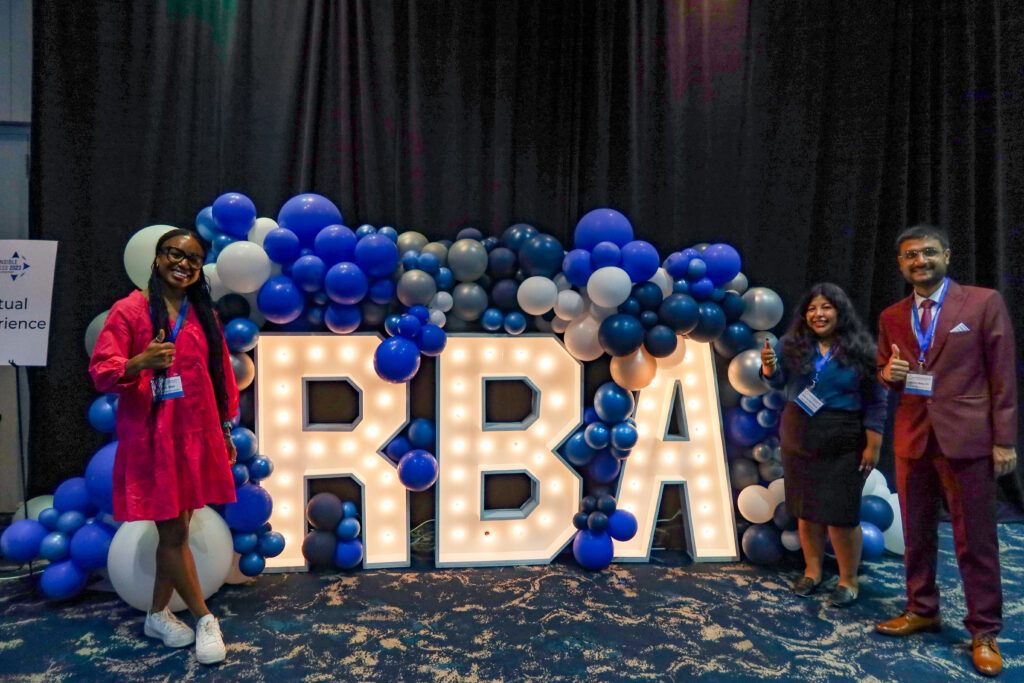
The Mosbacher Institute for Trade, Economics, and Public Policy has partnered with the Responsible Business Alliance to provide the Fundamentals of Social Auditing Training, which introduces the role of a social and environmental auditor in a factory environment. Specifically, the workshops focus on the requirements placed on manufacturers who aspire to comply with the Responsible Business Alliance (RBA) Code of Conduct, which includes Labor, Environment, Health & Safety, Ethics, and Management systems. These principles are the foundation of responsible business conduct and are transferable to most internationally accepted social audit programs.
Upon completion of this training program, a student will have gained a comprehensive understanding of the principles, legal frameworks, and best practices related to social auditing. They will be able to effectively design and implement a social audit, identify key stakeholders, and develop communication strategies for presenting social audit findings to different audiences as related to the Responsible Business Alliance Code of Conduct.
Students will also be able to select appropriate data collection methods and tools, triangulate social audit data while evaluating data quality, and develop social audit reports. Students will develop the critical thinking, problem-solving, and communication skills necessary to analyze and evaluate social audit findings. This program will equip students with the tools and knowledge to conduct effective social audits and promote responsible corporate social responsibility practices in their organizations or the industry at large.
Upon successful completion of this training program, students will receive the opportunity to apply for certification as provisional RBA auditors. Once certified, students will receive the opportunity to participate in a live social audit with certified RBA auditors. This training certification is required to achieve Provisional Auditor Approval for RBA Audits at any of the RBA-approved social audit firms.
Training Details
Title: Fundamentals of Social Auditing Training
Time: Friday afternoons, 12 – 2 p.m. CDT
Dates: August 30 – November 22, 2024
Location: Hybrid (on-site and virtual)
Prerequisites: None
The field of corporate social responsibility (CSR) has gained increasing importance in recent years, as businesses recognize the need to act in accordance with ethical and social norms. One of the key tools used to monitor and evaluate CSR practices is social auditing, which involves a comprehensive examination of a company’s social and environmental performance. Despite the growing demand for social auditing, there appears to be a shortage of trained social auditors in the industry. This shortage creates a number of issues, including a lack of expertise and capacity to carry out audits effectively and a potential risk of inadequate auditing practices that fail to identify key social and environmental issues. This is further exacerbated by the fact that social auditing is a complex process that requires a thorough understanding of auditing principles, legal frameworks, and ethical considerations. As such, the lack of trained social auditors in the industry presents a significant challenge to the effective implementation of CSR practices, and a critical need to ensure that social auditing can be conducted in a comprehensive and effective manner.
Addressing the shortage of social auditors in the industry can be accomplished through the implementation of targeted education and training programs. This program can provide individuals with the knowledge and skills necessary to conduct social audits effectively, and to uphold the highest standards of ethical conduct while doing so. Education programs can help to build the capacity of the auditing workforce, by training individuals to use the latest tools and techniques for data collection and analysis. Ultimately, education and training programs represent a key strategy for addressing the shortage of social auditors in the industry, by developing a highly skilled and knowledgeable workforce that can drive more effective and comprehensive social auditing practices.
The Fundamentals of Social Auditing produced by the Responsible Business Alliance and the Mosbacher Institute for Trade, Economics, and Public Policy is available free of charge to current graduate students and former graduate students of the Bush School of Government and Public Service.
Students will be required to attend a specified minimum number of workshops and score 80 percent or higher on the end-of-class assessment to receive the training certification.
Evaluation will be based on three exams, audit simulations, a class presentation, and class participation. The exams cover material from the readings, study guides, and class discussions.
Extra credit is available for participating in an optional live audit.
Raymond Robertson
Director Mosbacher Institute for Trade, Economics, and Public Policy
The Bush School of Government and Public Service
Texas A&M University
4220 TAMU College Station, TX 77843-4220
Email: robertson@tamu.edu
Phone: (979) 458-1069

